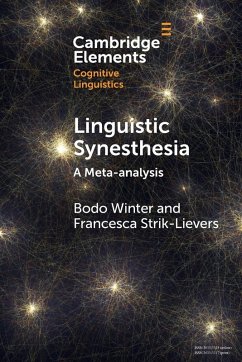
Inconsistency in Linguistic Theorising
Versandkostenfrei!
Versandfertig in 1-2 Wochen
33,99 €
inkl. MwSt.

PAYBACK Punkte
17 °P sammeln!
Bringing together ideas from linguistics and philosophy of science, this pioneering book offers an in-depth analysis of inconsistencies that occur when we try to theorise about language. It provides a novel metatheoretical framework, which can be used to improve the effectiveness of the working linguist's problem-solving activity.














